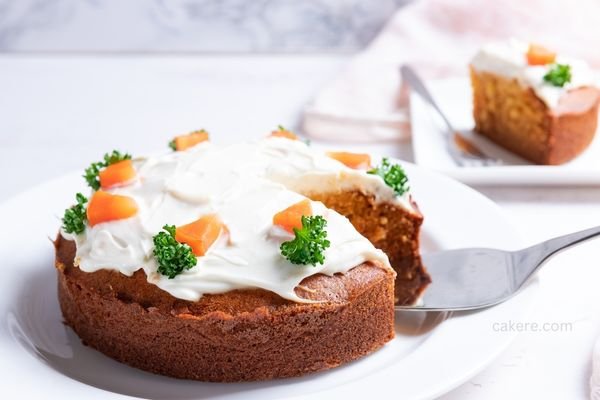Are you wondering whether it’s possible to freeze a homemade cake? Perhaps you’ve baked a delicious cake and have leftovers, or you want to prepare a cake in advance for a special occasion. Freezing cakes can be a convenient option, but it’s essential to understand the process and potential outcomes.

Why Freeze a Homemade Cake?
There are various reasons why you might want to freeze a homemade cake. Some of the common scenarios include:
- Convenience: Freezing allows you to prepare cakes in advance for special occasions or when you have limited time.
- Reducing Food Waste: If you have leftover cake, freezing it can prevent waste and provide a future treat.
- Preserving Special Moments: You can freeze a cake to preserve the memories associated with birthdays, anniversaries, or other milestones.
Factors to Consider Before Freezing a Cake
Before you freeze a homemade cake, consider the following factors to ensure the best possible outcome:
Cake Texture and Moisture
Not all cakes freeze equally well. Generally, cakes with a denser texture and higher fat content freeze better than light and airy cakes.
Moist cakes tend to freeze more successfully, as the moisture helps prevent them from drying out during the freezing process.
Frosting and Fillings
Cakes with simple buttercream frosting or no frosting at all freeze more effectively than those with delicate frostings, such as whipped cream or cream cheese.
Fillings such as fruit preserves or custards can affect the texture of the cake when frozen. It’s essential to consider these factors before freezing.
Storage Containers and Wrapping
Choosing the right storage containers and wrapping materials is crucial for maintaining the cake’s quality.
Opt for airtight containers or heavy-duty freezer bags to prevent freezer burn and protect against odors. Additionally, wrap the cake tightly in plastic wrap or aluminum foil before placing it in the storage container.
Proper Freezing Techniques
To freeze a homemade cake properly, follow these step-by-step instructions:
Cooling the Cake
Allow the cake to cool completely before freezing. This step ensures that the cake retains its shape and moisture during freezing. Place the cake on a wire rack and let it cool for at least one hour.
Wrapping the Cake
Once the cake has cooled, tightly wrap it in multiple layers of plastic wrap or aluminum foil. Ensure that every part of the cake is covered to prevent moisture loss and freezer burn.
For added protection For added protection, place the wrapped cake in a freezer-safe bag or container. Make sure to remove as much air as possible from the packaging to prevent freezer burn.
Storage Duration
When it comes to freezing cakes, it’s best to consume them within three months for optimal taste and texture. While cakes can be stored for longer periods, they may start to develop freezer burn or lose their quality over time.
Thawing and Serving the Frozen Cake
Thawing a frozen cake requires some patience and proper technique to ensure it retains its original taste and texture. Follow these steps for successful cake thawing:
- Remove the frozen cake from the freezer and leave it in the refrigerator overnight. Slow thawing in the fridge helps maintain the cake’s moisture.
- Once the cake has thawed in the refrigerator, allow it to sit at room temperature for about 30 minutes before serving. This step allows the cake to reach its ideal serving temperature.
Tips for Maintaining Cake Quality
To maintain the quality of your frozen homemade cake, consider the following tips:
Labeling and Dating
It’s crucial to label and date the cake before freezing. This practice helps you keep track of how long the cake has been frozen and ensures you consume it within the recommended timeframe.
Storage Conditions
To prevent the cake from absorbing odors and flavors from other foods in the freezer, store it away from strong-smelling items. Additionally, keep the cake in a stable location where it won’t be jostled or crushed by other frozen items.
Common Mistakes to Avoid
To ensure the best results when freezing homemade cakes, avoid the following common mistakes:
- Freezing frosted cakes without proper wrapping, which can lead to texture and flavor changes.
- Storing cakes in containers that are not airtight, resulting in freezer burn.
- Thawing the cake at room temperature, which can cause it to become soggy.
FAQs
Yes, you can freeze a cake with cream cheese frosting. However, the texture of the frosting may change slightly upon thawing.
Cakes with fruit filling can be frozen, but be aware that the texture of the fruit may change after thawing.
It’s best to consume a frozen cake within three months for optimal taste and quality.
Fondant can be frozen, but some decorations may become less visually appealing after thawing.
Yes, you can freeze cupcakes following similar techniques used for freezing cakes.
Conclusion
In conclusion, you can freeze homemade cakes with success if you follow the appropriate techniques.
Consider the texture, frosting, and fillings of the cake, choose suitable storage containers, and wrap the cake tightly to maintain its quality.
Proper thawing methods will ensure your cake tastes as delicious as it did when freshly baked.
By understanding the do’s and don’ts of freezing cakes, you can enjoy homemade treats anytime you desire.
